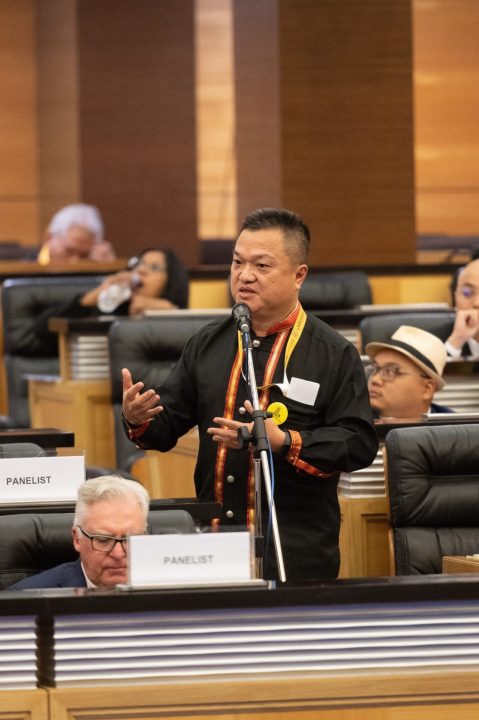スタッフ紹介 / 訪問研究者 / 過去に研究所に在籍した研究者
Wong Chin Huat

- 部門・職位
- グローバル生存基盤研究部門
招へい研究員 - 専門
- Comparative Democratization, Ethnic Conflicts, Institutional Design, Malaysian Politics
- 研究分野/キーワード
- Electoral Systems, Majoritarianism, Party Competition
- 連絡先
- chinhuatw@gmail.com
Wong Chin Huat
研究概要
Party Competition and Inter-communal Relations in Malaysia: Reassessing the Electoral System after Democratic Transition
My current project is a study on the interactions of the electoral system, power-sharing, and communal relations in Malaysia. The research is shaped by three key questions:
1. Is political centrism or moderation incentivized more by power-sharing than by electoral alliance?
2. Can the current majoritarian electoral system permit a healthy political competition that is not divided along ethnic and religious lines?
3. What change in the electoral system would encourage moderation in Malaysia’s new political landscape?
I examine both contemporary and historical periods to trace the evolution of the relationships and how it has influenced political moderation over time. The existing first-past-the-post (FPTP) system is credited for promoting centripetal politics by incentivizing monoethnic political parties to pool votes in multiethnic constituencies. While it is true that the FPTP drove the formation of the UMNO-dominated multiethnic Alliance in 1952 and sustained path dependency for its hegemonic successor, the Barisan Nasional (BN), I argue that this is no longer the case today. Three BN-emulating multiethnic opposition coalitions since 1990 disintegrated after failing to win power. When the Alliance of Hope (PH) finally ousted the BN in 2018, it too quickly disintegrated and was effectively reduced to the UMNO, which then teamed up with its former arch-rival, the Malaysian Islamic Party (PAS), to attack PH for selling out Malay Muslims. Since 2018, Malaysia has experienced an unexpected format of bipartisanism consisting of one multiethnic coalition versus one monoethnic coalition. Further, since 2020, hung parliaments have become a new norm. I examine these developments with an eye on how the current electoral system may be at fault and explore if a new electoral system may facilitate a less toxic political competition in Malaysia’s new era of multiparty democracy.
1. Is political centrism or moderation incentivized more by power-sharing than by electoral alliance?
2. Can the current majoritarian electoral system permit a healthy political competition that is not divided along ethnic and religious lines?
3. What change in the electoral system would encourage moderation in Malaysia’s new political landscape?
I examine both contemporary and historical periods to trace the evolution of the relationships and how it has influenced political moderation over time. The existing first-past-the-post (FPTP) system is credited for promoting centripetal politics by incentivizing monoethnic political parties to pool votes in multiethnic constituencies. While it is true that the FPTP drove the formation of the UMNO-dominated multiethnic Alliance in 1952 and sustained path dependency for its hegemonic successor, the Barisan Nasional (BN), I argue that this is no longer the case today. Three BN-emulating multiethnic opposition coalitions since 1990 disintegrated after failing to win power. When the Alliance of Hope (PH) finally ousted the BN in 2018, it too quickly disintegrated and was effectively reduced to the UMNO, which then teamed up with its former arch-rival, the Malaysian Islamic Party (PAS), to attack PH for selling out Malay Muslims. Since 2018, Malaysia has experienced an unexpected format of bipartisanism consisting of one multiethnic coalition versus one monoethnic coalition. Further, since 2020, hung parliaments have become a new norm. I examine these developments with an eye on how the current electoral system may be at fault and explore if a new electoral system may facilitate a less toxic political competition in Malaysia’s new era of multiparty democracy.
